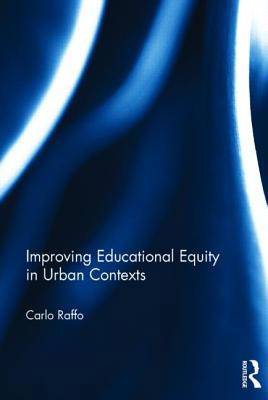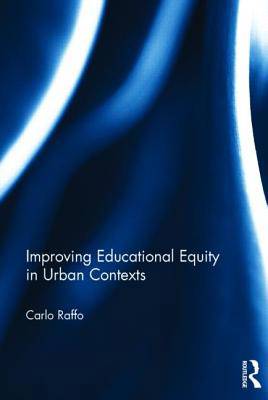
- Afhalen na 1 uur in een winkel met voorraad
- Gratis thuislevering in België vanaf € 30
- Ruim aanbod met 7 miljoen producten
- Afhalen na 1 uur in een winkel met voorraad
- Gratis thuislevering in België vanaf € 30
- Ruim aanbod met 7 miljoen producten
Omschrijving
An enduring educational concern that has plagued researchers and policy makers in a number of affluent countries is the endemic nature of educational inequalities. These inequalities highlight distinct differences in the educational skills, knowledge, capabilities and credentials between learners' demographic characteristics. They also point to issues of educational disadvantage that emanate from a combination of factors including family life, communities, the geographies of space and place, gender and ethnicity.
This book examines some of the causes and responses to educational inequalities, and focuses upon poor urban contexts where educational disadvantage is at its most concentrated, and where educational policy and practice has, over time, proliferated. It questions how wider inequities experienced by young people in urban contexts generate educational inequalities and disadvantage, detailing explicitly what an equitable approach to education might look like.
Included in the book is an innovative educational equity framework and toolkit with illustrative policy and practice case studies, bringing together unique scholarship and analysis to examine future educational policy in a holistic, comprehensive and equitable way. It will be valuable reading for postgraduate students, researchers and policy makers with an interest in education and educational equity.
Specificaties
Betrokkenen
- Auteur(s):
- Uitgeverij:
Inhoud
- Aantal bladzijden:
- 194
- Taal:
- Engels
Eigenschappen
- Productcode (EAN):
- 9780415817479
- Verschijningsdatum:
- 3/01/2014
- Uitvoering:
- Hardcover
- Formaat:
- Genaaid
- Afmetingen:
- 157 mm x 236 mm
- Gewicht:
- 430 g

Alleen bij Standaard Boekhandel
Beoordelingen
We publiceren alleen reviews die voldoen aan de voorwaarden voor reviews. Bekijk onze voorwaarden voor reviews.











